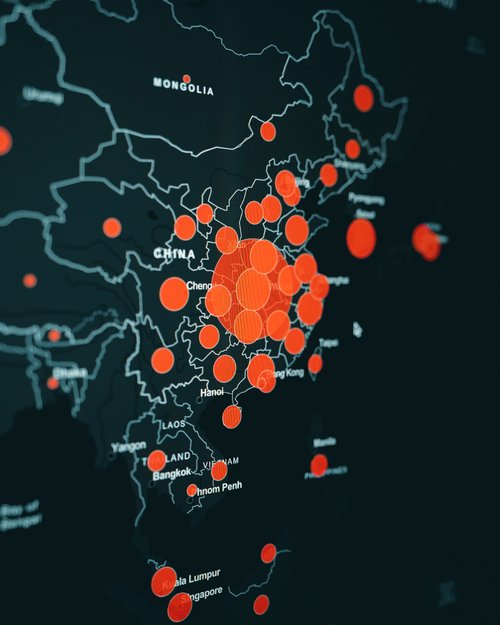Post-Pandemic: What Is Normal?
Wednesday, 02 December 2020By Chris Yapp

2020 has been an extraordinary year by anyone’s standards. The global scientific collaboration and competition has brought vaccines to the scene in what even 5 years ago would have seemed like science fiction. Not only are the techniques deployed novel, but the levels of efficacy are remarkable compared to long standing diseases such as the winter flu.
Subject to the regulatory approval internationally, the roll out of vaccination programmes in 2021 should ensure that by the end of 2021, the scale of the COVID-19 pandemic should be diminishing in both its health and economic impacts.
I note a mix of views among commentators about views on a “return to normal” or a “ new normal”.
The current pandemic is the most serious global health event since the Spanish Flu of 1918.
If we are to invest to secure economic stability and repair then it is important to look at the underlying assumptions about what this pandemic tells us about what to prepare for.
Importantly, the National Risk Register has for a number of years pointed to a pandemic as the most consequential risk to the UK. Yet we were weakly prepared for the outbreak.
Indeed, internationally, similar warnings have been noted for a number of years. The EU’s Early warning system for pandemics EWRS was established following earlier concerns over SARS, H1N1 and Ebola. It is noticeable that many of the countries that have done well in dealing with COVID-19 were impacted severely by SARS, in particular.
In the UK, Exercise Cygnus in 2016 predicted the problems that the NHS could face with a pandemic yet we proved ill -prepared.
So, for me, in attempting to see what “normal” means requires some big assumptions for any desirable outcomes we might seek. On the one hand we might argue that this is a 1 in 100 year event. Yet, a look at the risk registers in the UK and elsewhere shows that this was very far from an unforeseen event. The film Contagion, in 2011 describes a pandemic and its consequences in a detailed and now convincing way. That the WHO collaborated on this film indicates that this should have been better understood by governments and industry. This has been no “Black Swan” event.

Now SARS was only 15 years ago. Instead of a 1 in 100 year event, should we now plan for, say, a normal of 1 in every 10 years? The reason that Pandemics have been seen by Governments as a rising threat for nearly 20 years is that some of the conditions of the modern economy were likely to lead to increase in the frequency of novel diseases. Climate Change, Globalisation of supply chains and travel, for business and tourism were seen as likely to increase the speed at which a global pandemic would spread. The Black Death, histories most understood pandemic took 7 years to cause its devastation, far worse than the 1918 pandemic.
The good news is that our increased scientific knowledge and research collaboration internationally has come up with solutions to this crisis in a remarkable timescale.
So, the real challenge we face in rebuilding society and the economy is to understand the resilience needs of the modern world and to allocate risk capital accordingly. Countries with weak or fragmented public health systems have done by and large badly in dealing with the pandemic so far.
If we compare this to the difficulties faced in international action on the Climate Crisis where targets have been slow to be agreed and implemented, COVID-19 has both welcome and concerning comparisons.
So, I have an open question for discussion on this topic.
“What is the role of Finance in identifying and addressing systemic crises as we have experienced with COVID-19 in 2020?”
I think it is clear that working between industry, Finance, Governments and NGOs could be much improved to be better prepared for whatever and whenever the next crisis might be. How might investors price systemic risks in stocks such as hospitality, travel and transport, retail and health? How, and what, should boards learn from this crisis to be more resilient to the next?
There is one lesson from retail that is worth reflecting on here. The move from physical to online has been a trend for some years and was considered to be a continuing trend for the next decade. What has happened in parts of retail is that expectations of 2030 have happened in a year. In other words, the direction was clear, but the timing has been rapidly brought forward by the crisis. I have long derided the “everything changes” mantra, especially in technologies. I have occasionally suggested an economic version of Heisenberg’s uncertainty principle, that the more we are certain about the trend, the less we are certain on the timing.
Look at 2 other areas of concern, food security and energy security.

Can we be confident that our food systems and our energy systems are both sustainable and risk aware? Friends and colleagues with deeper knowledge in these areas tell me that we are under-pricing risk in these two key sectors.
Every crisis brings opportunities to those with resources and foresight.
There is cause for optimism with the rapid development of novel vaccines. Let’s build on that optimism, but at the same time, there is a need for some soul searching as to why, when this was a known and growing risk, we’ve not done well globally. I’m less interested at pointing fingers at the guilty than at ensuring that we face the next crisis better prepared than we have been this time.
There will no doubt be government reports that take a decade to emerge, but I argue that that is not good enough. Finance has a key role in the 2020s, if it acts faster than Governments to learn from the events of 2020.
That would be good for London as a Financial Centre. It would be good for the rest of us too.
I can think of no better or more urgent gift to the world in 2021.
Best wishes, stay safe, take care.